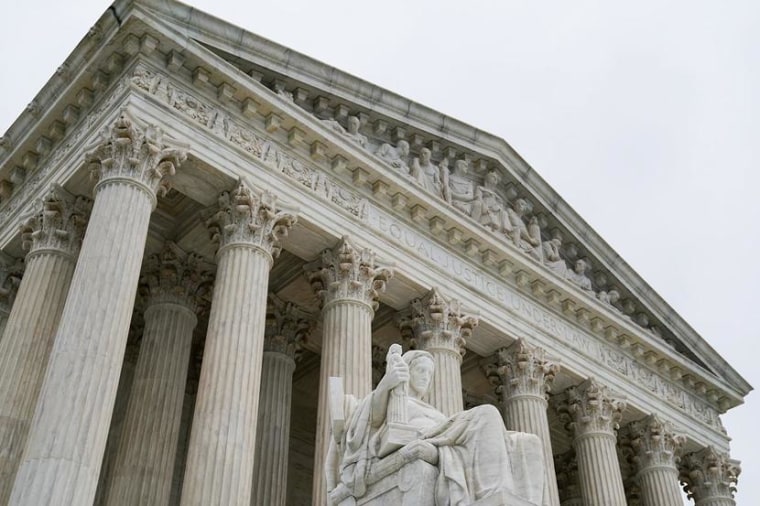There was a point several years ago when the Affordable Care Act was not popular, and Democrats were conditioned to avoid "Obamacare." That period has passed.
Accepting his party's presidential nomination last night, Joe Biden twice referenced the landmark health care law by name, and warned voters about what Donald Trump and his Republican Party have in mind: "[T]he assault on the Affordable Care Act will continue until its destroyed, taking insurance away from more than 20 million people -- including more than 15 million people on Medicaid -- and getting rid of the protections that President Obama and I passed for people who suffer from a pre-existing condition."
The comments came just one day after the Supreme Court made some news on this front.
The U.S. Supreme Court will hear oral argument on the future of Obamacare on Nov. 10 -- a week after the presidential election -- the court announced Wednesday. The case will determine whether the Affordable Care Act that provides millions of Americans with health insurance can continue to be enforced. By scheduling the case after Election Day, the court will prevent the argument, likely to be conducted by telephone conference call, from becoming fodder for campaign ads.
For those who may need a refresher, at issue is a lawsuit from state Republican officials -- with the enthusiastic support of the Trump administration -- who are arguing that the ACA must be torn down altogether because Congress gutted the ACA's individual mandate in late 2017. By Republicans' reasoning, this provision was so integral to the reform law that the nation's health care system can't function without it.
Their argument, of course, is belied by the fact that the Affordable Care Act appears to be working just fine, even after federal GOP lawmakers effectively scrapped the relevant tax provision more than two years ago.
Nevertheless, Republicans persuaded a far-right judge in Texas to go along with the scheme. The week before Christmas in 2018, U.S. District Judge Reed O'Connor -- a Bush-appointed jurist in Texas -- agreed to strike down the entirety of the Affordable Care Act, root and branch.
Even many conservatives and ACA critics agreed that the ruling was indefensible. Reactions tended to include words and phrases such as "pretty bananas," "embarrassingly bad," and "absurd."
The hope among health care advocates was that the 5th Circuit would hear the appeal, overturn the nonsensical district court ruling, and the matter would be put to rest. That's not what happened: late last year, a three-judge appellate panel -- one nominated by Donald Trump, the other by George W. Bush -- ruled that if the tax is zero, the ACA's individual mandate becomes unconstitutional. They then sent the case back to the lower court.
In effect, the 5th Circuit tasked O'Connor, the far-right judge whose ruling was widely panned, to reconsider the case after they rejected the ACA's individual mandate. The point, evidently, was for him to evaluate whether elements of the law could remain intact, or whether the entirety of the ACA system -- every benefit, every protection, every safeguard, etc. -- should be destroyed.
Now that the Supreme Court has taken up the case, we won't have to wait for a lengthy appellate process to unfold. We will, however, have to wait until after the 2020 elections, which is what Republicans hoped for: if conservative justices were to gut the health security of tens of millions of Americans, shortly before voters went to the polls, GOP candidates would face an immediate political crisis.
That said, the fact that the high court will hear oral arguments the week after the elections will help position the issue as a central focus of the presidential race.
As for the threat many families are now facing, it's worth noting for context that the last time the Supreme Court considered the legality of "Obamacare," the reform law prevailed in a 6-3 ruling. Of the six justices in the majority -- Roberts, Kennedy, Ginsburg, Breyer, Kagan, and Sotomayor -- five are still on the nine-member bench. It's why, when push comes to shove, most of the people involved in this fight believe common sense and a sensible approach to the law will ultimately prevail.
That said, the high court is sometimes unpredictable, and it wouldn't take much of a shift for the justices to tear down the nation's health care system.
